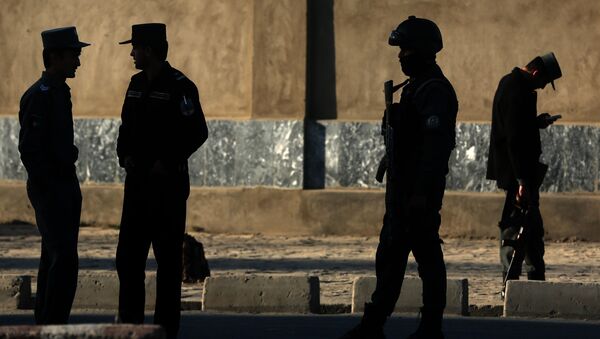Investigators from UNAMA — UN Assistance Mission in Afghanistan — spent two years interviewing 469 detainees in 62 detention centers across Afghanistan.
In all, the report says 39 percent of conflict-related detainees interviewed by the UNAMA gave "credible and reliable accounts" of being tortured or experiencing severe mistreatment at the hands of the Afghan national police, intelligence, or military personnel while in custody.
New UN report: #torture & ill-treatment of conflict-related detainees persists in #Afghanistan gov't detention — https://t.co/xLfvgSxkJM pic.twitter.com/VpEpjFSDXy
— UNAMA News (@UNAMAnews) April 24, 2017
Among the methods described by interviewees were severe beatings to the body and soles of the feet with sticks, plastic pipes or cables, electric shocks, including to the genitals, prolonged suspension by the arms, and suffocation.
The total compares with 35 percent of interviewees who reported ill treatment in the UN's previous investigation into the issue in 2015, although this apparently slight uptick in brutality obscures significant spikes in specific areas — for instance, 45 percent who had had been detained by the National Police said they had been tortured or ill-treated, the highest level documented since UNAMA began its monitoring program in 2010, and a leap of 14 percentage points.
More than a quarter of tortured detainees were under the age of 18. Detainees held by the Afghan Local Police were even more likely to experience violence, with 60 percent reporting having been beaten, and 30 percent of interviewees held by the National Directorate of Security faced torture or mistreatment.
Afghan National Army soldiers were also accused of mistreating some detainees, but the prisoners held by the army usually fall in categories less vulnerable to torture.
The majority of detainees said they had been tortured in order to extort false confessions, and the torture ceased once they signed or thumbprinted pre-prepared confession statements. In many cases, interviewees did not understand or could not read what was written on the document.
"Torture does not enhance security. Confessions produced as a result of torture are totally unreliable. People will say anything to stop the pain. It is essential there is proper monitoring of detention facilities in Afghanistan and meaningful investigations to ensure those accused of torture are brought to trial and held accountable for this abhorrent crime. Ensuring accountability for such acts sends a strong message and helps to prevent future violations," said UN High Commissioner for Human Rights Zeid Ra'ad Al Hussein.
Nonetheless, the report welcomes the government's efforts to implement its National Plan on the Elimination of Torture, promulgated in February 2015, particularly with regard to enacting legislation, issuing policies, and establishing and developing mechanisms for humanitarian oversight within law enforcement and security institutions.
UN recognizes #Afghan gov’t stated commitment to implement plan to eliminate #torture of conflict-related detainees —https://t.co/xLfvgSxkJM pic.twitter.com/jRDQ4hc5u0
— UNAMA News (@UNAMAnews) April 24, 2017
If proposed legislative changes are adopted, the report said, Afghanistan would formally recognize the authority of the UN Committee Against Torture to conduct visits to places of detention, and undertake to establish an independent monitoring body to visit places of detention with the support of the UN Subcommittee on the Prevention of Torture
The report is published days before senior Afghan officials are scheduled to appear before the UN Committee Against Torture in Geneva, to face a review of Afghanistan's record of implementing anti-torture laws.
Watch #UN #torture hearing in Geneva on #Afghanistan on 25-26 April at https://t.co/UnYi73tpYs. More info at https://t.co/PEgPKTH9Bu pic.twitter.com/jCNSCSH0Ax
— UNAMA News (@UNAMAnews) April 24, 2017
The International Criminal Court in The Hague is conducting a separate review of torture in Afghanistan, although their sphere of research includes abuses committed by US forces during their 13-year occupation of the country.
ICC Prosecutor Fatou Bensouda has said there is a "reasonable basis" for believing US forces and the Central Intelligence Agency resorted to techniques amounting to the commission of the war crimes, including "of torture, cruel treatment, outrages upon personal dignity, and rape."



